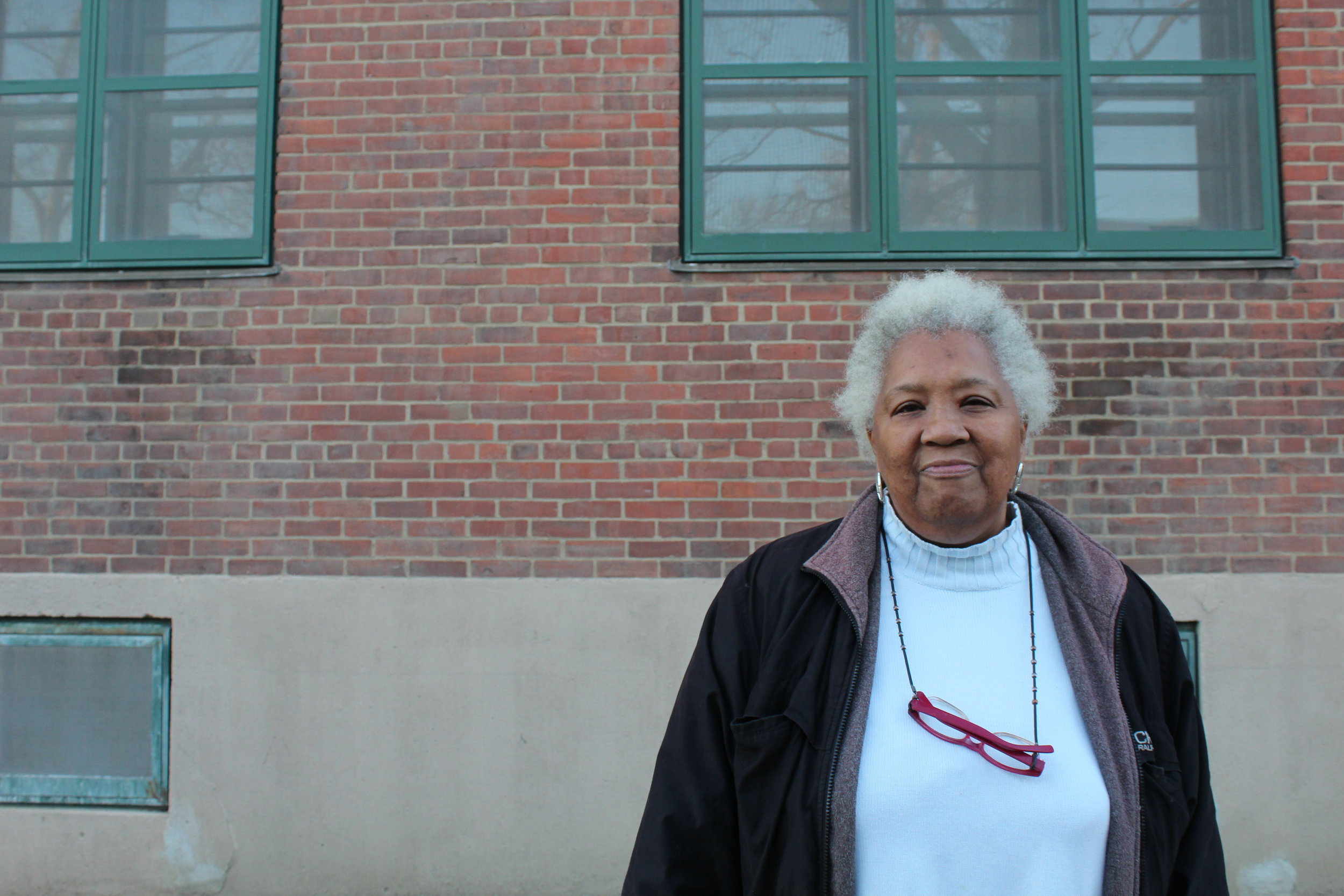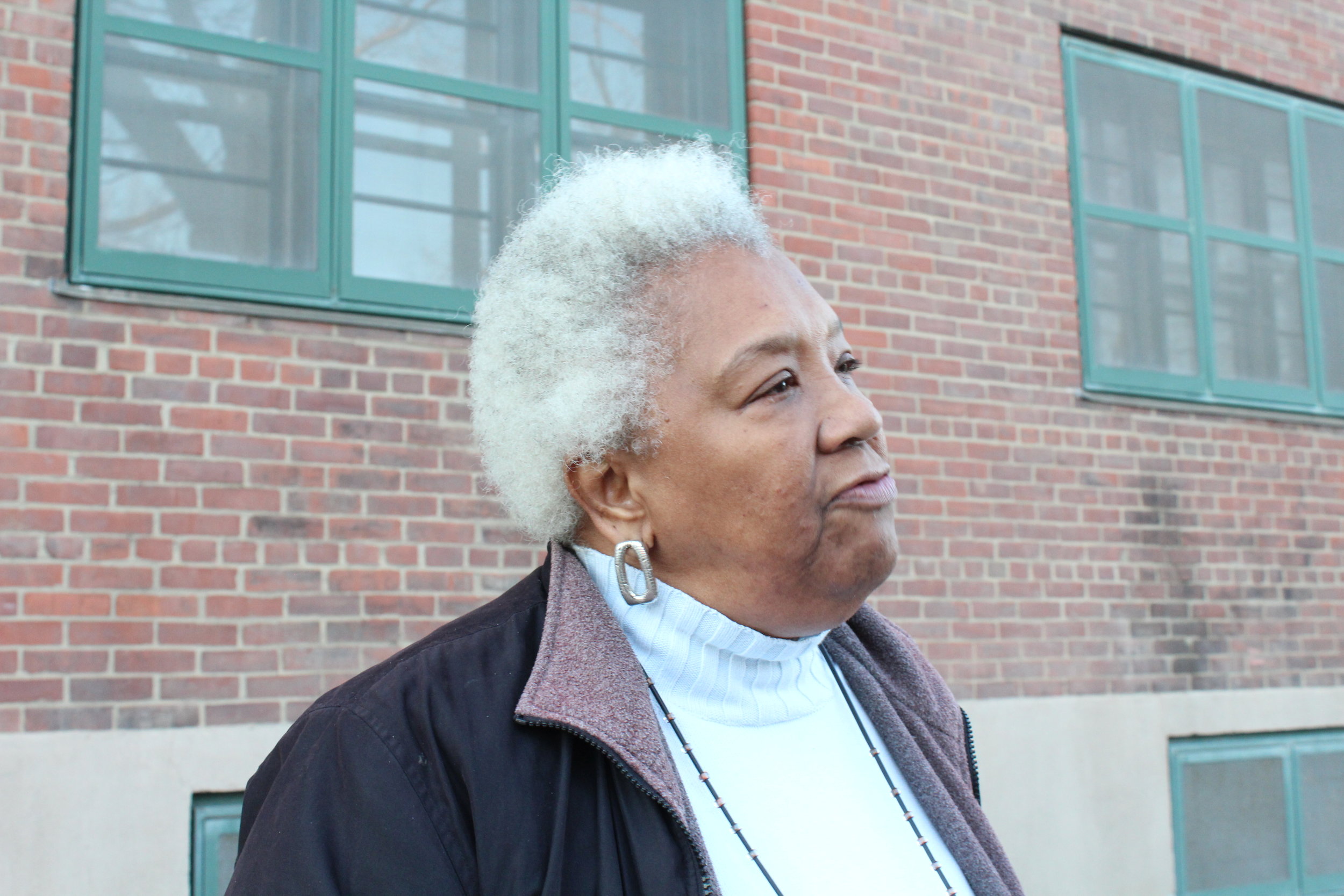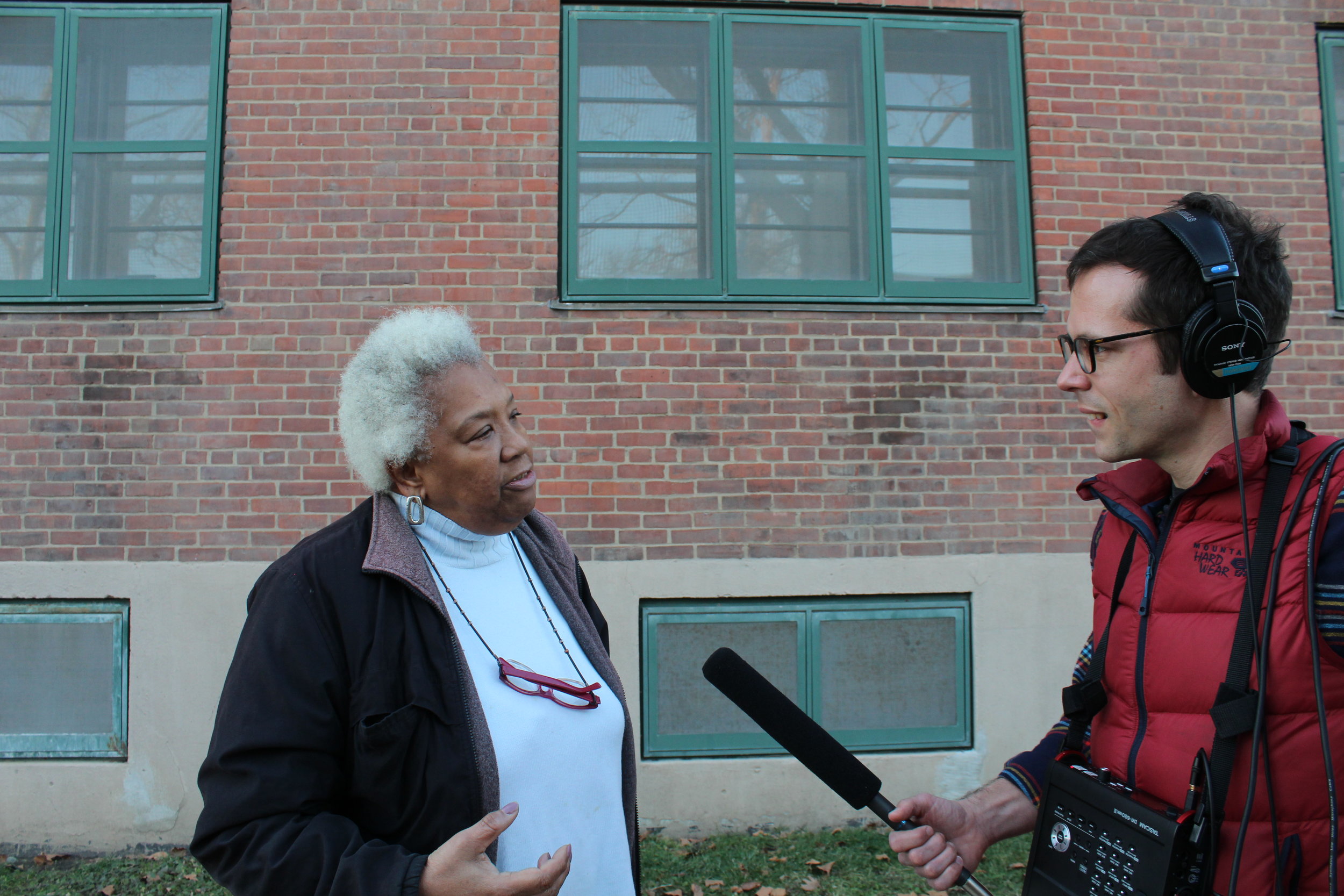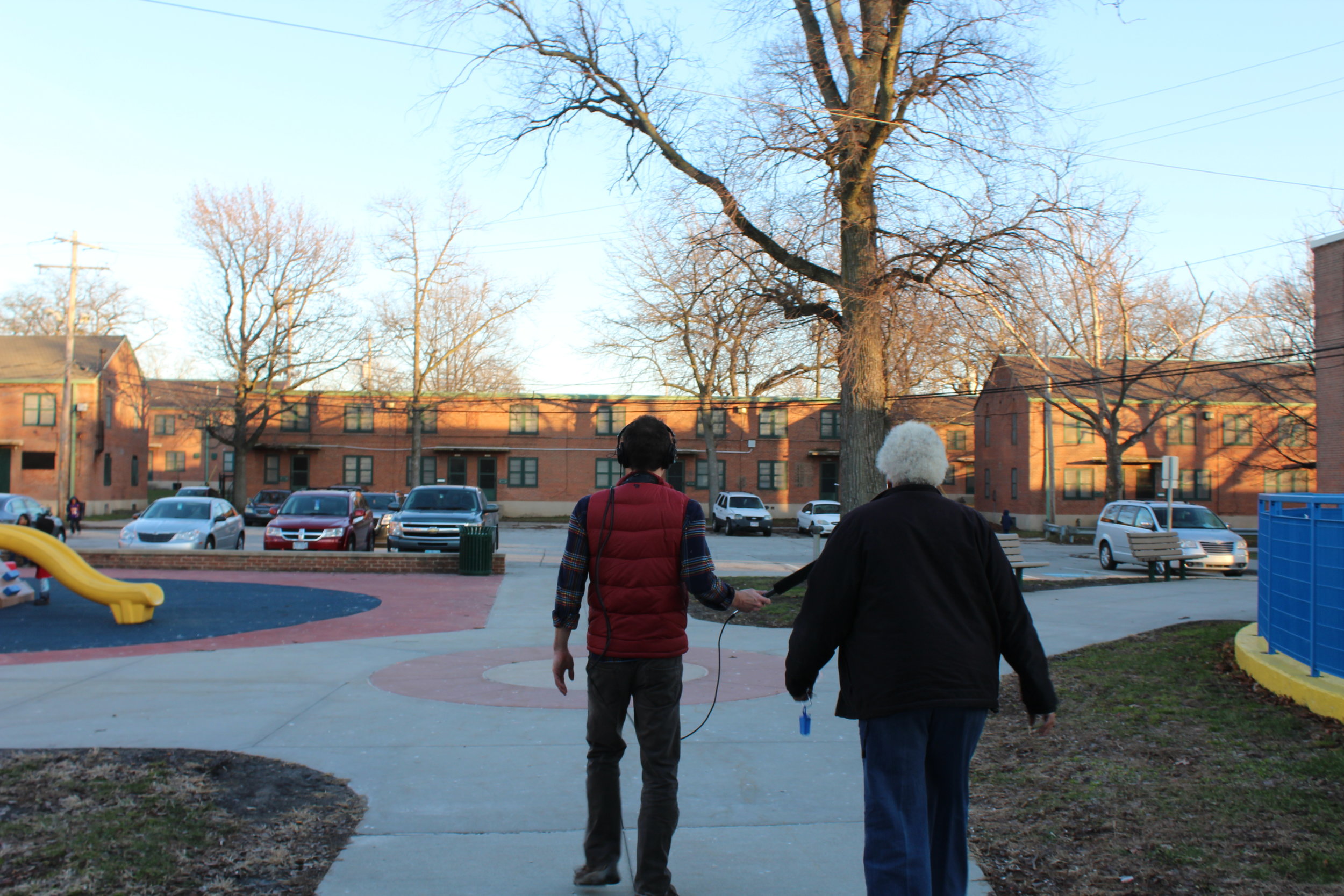



You know the feeling. I’ll just watch one episode. I’ll just stay for an hour. I’ll only keep the job for a year. And then an hour, a day, a year goes by — two years, three years — and you’re still doing the same thing. You like what you’re doing. You’re happy. You’re staying.
That’s what happened to Marilyn Burns. When she moved into Cleveland public housing, she thought it was temporary. Just a chance to get back on her feet.
That was 12 years ago. Today, she’s still there — and happy. In fact, she went from being reluctant to come and eager to leave, to being one of her neighborhood’s biggest advocates. What happened? That’s the story on this episode of Watershed.
Five years, no more
Woodhill Homes is a public housing estate on Cleveland’s East Side, home to 700 people. Most of them live in walkup brick apartment buildings clustered around a community center and a playground with slides and a splash park.
Marilyn Burns is one of those residents.
She lives in a one-bedroom apartment looking out toward downtown Cleveland. Well, you can’t really see it out her window, but she knows it’s there.
The walls of her small living room are covered - just about every square inch - with inspirational posters. Photographs from nature, with proverbs printed underneath...
"I always use this as my example," she says, reading. "'Attitude is a little thing that makes a big difference.' It’s like how you take a pebble and throw it in the pond, how it spreads out you know."
She got them from her pastor at church, when he was cleaning out some old stuff he didn’t want anymore.
"I like this one too - 'Change. If you’re not riding the wave of change, you’ll find yourself beneath the wave.' All these things I try to read every day as my inspiration for when i leave out, pump myself up so to speak."
Ms. Burns needs that pumping up - because she’s really busy. She surveys community members about public health for a research program at Case Western Reserve University, she teaches classes on managing diabetes and chronic pain at a center for senior citizens… and today, she’s working the front desk at the Woodhill Homes Community Center - buzzing in kids for the after-school program.
She doesn’t get paid for doing this. She’s doing it because she likes to be involved - feels like it’s her calling. But that’s not what brought her to Woodhill Homes back in 2005. She didn’t move here to help out — she needed help. She came because she had nowhere else to go.
"Actually I made some bad mistakes in my life, dealing with wrong people and it cost me a great deal," she says quietly. "So I needed a place to stay. I put in for housing. Someone had told me about public housing you need something right now right now."
Ms. Burns grew up in Mount Pleasant, a nice neighborhood right on the border with affluent Shaker Heights. Her family was well off enough that they could hire a nanny. Public housing felt like another world.
"I told myself five years and then I’m out of here, I can’t even do this," she says.
It was hard on her. Her family didn’t understand, especially her son.
"He came to visit me one day down here, and he was appalled," she says. "He was actually angry with me. 'How could you live like this, what did you do.'
"I was ashamed and embarrassed, because I’ve never lived like that," she says. "And he said he would never be back. I think he came twice to visit me and after that never again."
He ended up dying of cancer, at the age of 36. He and Ms. Burns weren’t speaking at the time, in part because of how much he disapproved of where she was living.
Why am I here?
In those early years, Ms. Burns struggled. A lot. She couldn’t believe her life had come to this.
Eventually, she decided the best way to cope was to take action. To see what she could do to help her neighbors.
"You know at my church, we have a mission statement that says if you can help one person along the way then your living won’t be in vain," she says. "And I take that to heart."
At first, Ms. Burns says she went overboard. She got involved in places - and lives - where she wasn’t wanted. She’d lecture people about the evils of doing drugs, or give them advice about how they should raise their kids.
It got to the point where some of her neighbors complained about her to management. Even tried to get her evicted.
It was around that time that she first met Robert White - who was then the assistant manager of the community center. And he basically told her - slow down.
"I came here with the purpose of trying to change the whole world," she says with a laugh. "And Mr. White said 'Stop. You’ll drive yourself insane. Find some place outside this place that's worthy of you."
That’s exactly what she did. She enrolled in college classes. Got involved as a volunteer at the senior citizens center, and at Case Western Reserve.
She says her main goal is still to improve the lives of people living at Woodhill Homes - to make sure they have access to healthy food and good medical care and job training.
But getting outside the boundaries of Woodhill Homes gave her new perspective. It showed her how to help people in a way they didn’t feel threatened.
"I formulate this every day: 'Why doesn’t everybody want to change? Why doesn’t everybody accept what I’m trying to give?'" she says. "Sometimes it’s because they don’t know how, sometimes it might be out of fear. And some people aren’t willing to take that first step. But the ones that are, I’ll walk with you."
One young mother with two kids told Ms. Burns she wanted to complete her college degree.
"Every day, I said 'You want some help, you want me to keep the kids, what’s the problem?'"
The woman graduated from Kaplan University, and has a job in social work. She's engaged, and has plans to move out of Woodhill.
A big sister, and a calming influence
As we wrap up our tour for the day, Robert White lets us back in the building.
He says what he's learned as much from Ms. Burns as she has from him.
"You always need a big sister," he says. "She’s been my big sister since I’ve been here. She brought new life to a place that didn’t have much."
"And you know he’s a good person to vent," Ms. Burns says. "Because I get so serious. And he doesn’t. A lot of things I take so seriously, he busts out laughing.
As if on cue, they both break up.
Here by choice
Twelve years after she first moved in, Ms. Burns says she still sees herself one day leaving Woodhill Homes. But she’s no longer in a hurry.
"I’m a spiritual person," she says. "And I think god is keeping me for a reason. because if i left here, in all honesty? There is no advocate for this place. There is no one here physically fighting for these people, fighting for a change."
So is she now here by choice?
"Yes," she answers, without hesitation. "Yes. I’m here by choice. And when [God] is ready, He’ll move me to where he wants me to be."
She pauses.
"But my work is not finished yet," she says. "It’s not finished."
